Field Scientific

What initiatives can be taken to improve scientific literacy among women ?
Scientific literacy is important for making informed decisions about health, environment, and technology. Women often face barriers to accessing scientific education and resources. To improve scientific literacy among women, initiatives such as educational programs, community outreach, media representation, and policy changes can be taken. These include integrating STEM subjects into the school curriculum, offering girls-only classes, connecting young girls with female role models in STEM fields, establishing community-based science clubs for women of all ages, organizing public lectures by women scientists, conducting workshops and training sessions on various scientific topics, highlighting stories of successful women in science through media platforms, encouraging more women to pursue careers in science journalism, utilizing social media platforms to create awareness about scientific issues affecting women's lives, advocating for increased funding for educational programs and research initiatives focused on improving women's participation in STEM fields, lobbying for policies that ensure equal opportunities for women in science education and employment, and implementing mandatory gender bias training for educators and professionals working in STEM fields. By implementing these initiatives, we can create a more inclusive environment that encourages women to explore and contribute to the field of science.

How does scientific literacy among women influence their career choices in science and technology fields ?
Scientific literacy significantly influences women's career choices in science and technology fields by enhancing opportunities, overcoming barriers, increasing diversity, and improving representation. It enables women to access complex scientific information, develop problem-solving skills, broaden their perspectives, break stereotypes, promote equality, address biases, expand career horizons, encourage mentorship, foster collaboration, challenge underrepresentation, influence policy, and change public perceptions about the suitability of these fields for females.
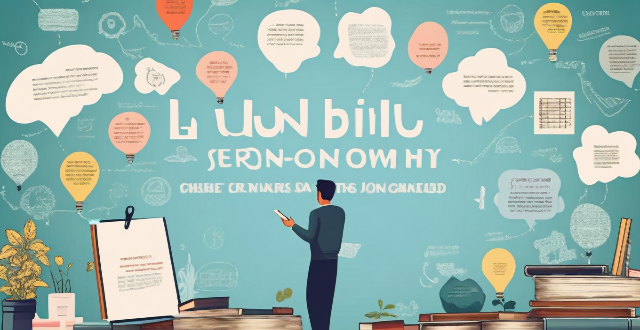
How can I build a strong knowledge framework in my field of study ?
To build a strong knowledge framework in your field of study, follow these steps: define your goals, conduct research, build a foundational understanding, connect ideas and concepts, apply your knowledge, and continuously learn. By doing so, you'll be able to think critically, solve complex problems, and contribute to the advancement of your field.

What are some effective scientific memorization techniques ?
Effective Scientific Memorization Techniques Memorizing scientific information can be a challenging task, but with the right techniques, it can become much easier. Here are some effective scientific memorization techniques that you can use to improve your memory and recall: 1. Visualization: Create mental images of the concepts you are trying to remember to make them more memorable and easier to recall. 2. Mnemonic Devices: Use tools like acronyms or rhymes to associate information with something else that is easier to remember. 3. Repetition and Practice: Repeat information over and over again to strengthen your memory and improve your ability to recall it later on. 4. Chunking: Break down large amounts of information into smaller, more manageable chunks to make it easier to remember and recall complex concepts or data sets.
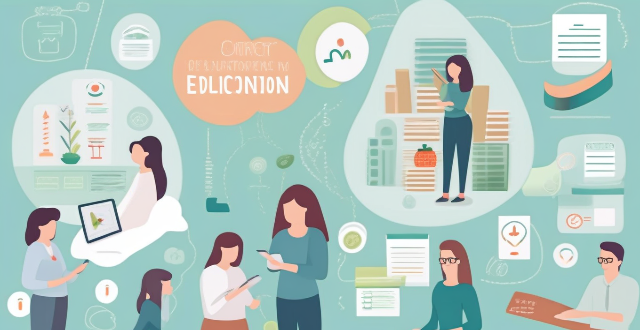
What are the key factors that contribute to women's scientific literacy ?
Scientific literacy is crucial for personal development and education, enabling individuals to engage with their surroundings. For women, achieving scientific literacy can be influenced by various factors such as educational opportunities, cultural and societal norms, support systems and resources, workplace environment, policy and legislation, community and media representation, and personal development and self-advocacy. Addressing these key factors can empower women with the scientific knowledge needed to thrive in an increasingly technological world.

How does scientific literacy among women vary across different countries and cultures ?
This article explores the variations in scientific literacy among women across different countries and cultures. It highlights the factors that influence scientific literacy, including education, socio-economic status, cultural norms, and access to resources. The article also discusses the implications of these variations for society as a whole, such as health outcomes, economic development, and environmental sustainability efforts. Finally, it emphasizes the importance of promoting scientific literacy among women through targeted education programs and initiatives that address the specific challenges faced by women in different cultural contexts.

How do I find scholarships specific to my field of study ?
Finding scholarships specific to your field of study can be a challenging task, but it is definitely worth the effort. Here are some steps you can take to find scholarships that match your academic interests and career goals: 1. Research your field thoroughly to identify key organizations, associations, and institutions that offer scholarships related to your area of interest. 2. Use online scholarship search engines such as Fastweb, ScholarshipOwl, and Cappex to find scholarships based on your academic achievements, extracurricular activities, and career goals. 3. Check with your school's financial aid office for information about scholarships specific to your field of study and resources such as scholarship databases or lists of local organizations that offer scholarships. 4. Attend scholarship workshops and events hosted by your school or local community organizations to network with professionals in your field and learn about scholarship opportunities. 5. Contact professional organizations and associations in your field directly to find out about available scholarships and application requirements.

What challenges do women face in achieving scientific literacy, especially in developing countries ?
Scientific literacy is crucial for individuals to understand and make informed decisions about the world around them. However, women in developing countries face numerous challenges in achieving scientific literacy due to various socio-economic and cultural factors. These include a lack of access to education, economic barriers such as poverty and limited job prospects, gender stereotypes and bias in teaching methods, family pressures and responsibilities like child marriage and household chores, inadequate infrastructure, and a technological divide. Overcoming these challenges requires concerted efforts from governments, educational institutions, NGOs, and communities to promote gender equality in science education. By addressing socio-economic barriers, changing cultural perceptions, improving infrastructure, and bridging technology gaps, we can create an environment where women can achieve scientific literacy and contribute fully to the advancement of science worldwide.

What are the benefits of having a higher level of scientific literacy among women ?
The article discusses the advantages of having a higher level of scientific literacy among women. It highlights how it leads to improved health outcomes, economic empowerment, environmental sustainability, social progress, and global impact. Women with strong scientific literacy are more likely to make informed healthcare decisions, pursue careers in STEM fields, engage in environmentally responsible behaviors, challenge traditional gender roles, and contribute to solving global issues. The benefits of enhancing women's scientific literacy are vast and far-reaching, making it a key component of our collective efforts towards creating a more equitable world where everyone has access to quality education and opportunities.

What role does neuroplasticity play in scientific memory enhancement ?
Neuroplasticity is a key mechanism in memory enhancement, involving changes in neural connections and networks. It plays a role in forming new pathways, strengthening existing ones, and enhancing cognitive functions related to memory. Techniques leveraging neuroplasticity include environmental enrichment, cognitive training, lifestyle choices, and medical interventions. Understanding and harnessing neuroplasticity can lead to strategies for improving memory function across the lifespan.

How does scientific literacy among women impact society ?
Scientific literacy among women has significant benefits for society, including improved health outcomes, increased economic opportunities, enhanced environmental stewardship, greater participation in policy decisions, and promotion of gender equality. However, challenges such as lack of access to quality education, gender biases in STEM fields, limited role models, and workplace discrimination must be addressed to fully realize these benefits.

Can we trust climate models for future predictions ?
Climate models are designed to predict future changes in the Earth's climate based on scientific principles and past observations. Trust in these models depends on factors such as their scientific foundation, data quality, model complexity, intercomparison, historical validation, uncertainty quantification, and continuous improvement. While no model can perfectly predict the future, climate models offer valuable insights into potential future scenarios based on current knowledge and understanding. However, it is important to recognize their limitations and uncertainties when interpreting their results.
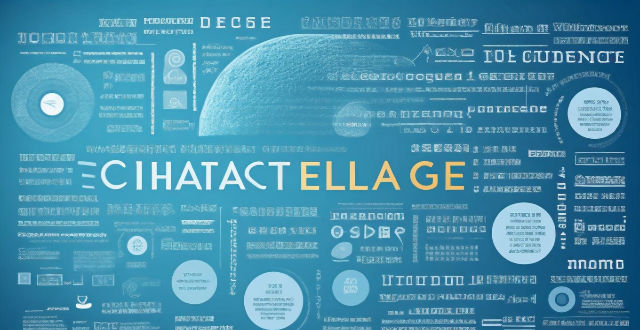
Are there any reputable scientists who support the views of climate skeptics ?
The text discusses the topic of climate change and whether there are reputable scientists who support the views of climate skeptics. It mentions that while there may be scientists who express skepticism about certain aspects of climate change, it is rare to find reputable scientists who entirely reject the consensus view on anthropogenic climate change. The text provides information on three scientists who have been critical of certain aspects of climate change, but notes that their views are often disputed within the scientific community. The text concludes by stating that the overwhelming majority of scientific evidence supports the idea that human activities are contributing significantly to global warming, and that it is essential to rely on comprehensive reviews of scientific literature and consensus reports from authoritative bodies like the Intergovernmental Panel on Climate Change (IPCC) for the most accurate understanding of climate change and its implications.

How can we predict and prepare for extreme weather events ?
Predicting and preparing for extreme weather events is a critical aspect of modern society. With advancements in technology and scientific research, we now have the ability to forecast these events with greater accuracy than ever before. However, predicting and preparing for extreme weather events requires a multi-faceted approach that involves both scientific knowledge and practical preparation. In this article, we will explore some of the key ways in which we can predict and prepare for extreme weather events.
![What subjects did [insert celebrity name] study in college ?](/images/3nde/d0c5972b-3f94-4446-a867-a064f066a8ad.png)
What subjects did [insert celebrity name] study in college ?
The academic pursuits of [insert celebrity name] during their college years are explored in this article. The primary field of study for the celebrity is discussed, along with any minor fields of interest and elective courses taken. Notable projects and theses completed by the celebrity are highlighted, as well as their involvement in extracurricular activities. The article also discusses the celebrity's post-college pursuits and how their education played a role in shaping their career.

How do spaced repetition systems align with scientific memory principles ?
Spaced repetition systems (SRS) align with scientific memory principles in several ways, including active recall, the spacing effect, the testing effect, retrieval cue variability, elaborative interference, desirable difficulty, feedback, and individualized learning. These techniques help to enhance information retention and optimize the learning process.

What are the challenges in enforcing international environmental laws related to climate change ?
Enforcing international environmental laws related to climate change faces challenges such as a lack of global leadership and coordination, inadequate legal frameworks, economic and developmental imbalances, scientific uncertainty and information gaps, socio-cultural factors, and technological and infrastructure limitations. These issues require cooperation among nations, stronger legal frameworks, balanced economic development, improved scientific understanding, cultural sensitivity, and technological advancement to overcome.

How can I transition into a new career field or industry ?
Transitioning into a new career field or industry requires careful planning, research, and a willingness to learn new skills. To make the transition smoother, assess your skills and interests, research potential careers, gain relevant experience through courses, certifications, volunteering, or part-time jobs, update your resume and cover letter, and apply for jobs while preparing for interviews. By following these steps, you'll be well-prepared to make a successful transition into an exciting new chapter of your professional life.

What role do education systems play in promoting scientific literacy among women ?
Education systems play a crucial role in promoting scientific literacy among women by providing equal access to education, encouraging female teachers, offering extracurricular activities, addressing gender bias, and providing mentorship programs.

Can you explain the concept of "chunking" in scientific memory techniques ?
Chunking is a fundamental concept in scientific memory techniques that helps individuals improve their ability to remember information. It involves grouping individual pieces of information into larger, more meaningful units or "chunks." This process makes it easier for the brain to store and retrieve information efficiently. Chunking has numerous applications across various fields, including education, psychology, and computer science. Its benefits include increased recall speed, reduced cognitive load, enhanced learning efficiency, and improved organization. Examples of chunking include phone numbers, alphabetical order, and calendar dates.

How does scientific literacy among women affect their decision-making abilities in healthcare and environmental issues ?
The level of scientific literacy among women significantly influences their decision-making abilities in healthcare and environmental issues. Scientifically literate women are better equipped to access, understand, and critically evaluate health information, leading to healthier lifestyle choices and more effective communication with healthcare providers. They also show greater awareness of environmental issues and are more likely to adopt sustainable practices, engage in conservation efforts, and advocate for evidence-based policies. Enhancing scientific literacy among women is crucial for empowering them to make well-informed choices that benefit both their own health and the environment.

Are there any proven scientific strategies for enhancing memory recall ?
Memory recall is the ability to retrieve information from our memory. It is an essential aspect of learning and can be improved through various scientific strategies. Here are some proven methods for enhancing memory recall: 1. **Active Learning**: Engaging with the material you want to remember, such as reading aloud, taking notes, or teaching others. 2. **Mnemonic Devices**: Techniques that help you remember information by associating it with something easier to remember, like acronyms, visual imagery, or rhymes. 3. **Spaced Repetition**: A learning technique that involves reviewing information at increasing intervals over time, using tools like flashcards or online tools. 4. **Elaborative Interrogation**: Asking yourself "why" questions about the material you are trying to remember to deepen your understanding and retention. 5. **Chunking**: Grouping related pieces of information together into larger, more manageable chunks to reduce cognitive load and make it easier to remember complex information. 6. **Sleep and Rest**: Getting enough sleep and taking breaks while studying can improve memory recall by allowing the brain to consolidate memories and prevent burnout. By incorporating these techniques into your study routine, you can improve your ability to retain and retrieve information from your memory.

What is a DC brushed motor and how does it work ?
**DC Brushed Motor Overview:** A DC brushed motor is an electric machine that converts direct current into mechanical energy, utilizing magnetic fields and electromagnetism. It consists of a stator, rotor, brushes, and a commutator. The motor operates by applying DC voltage to the stator windings, creating a magnetic field that interacts with the rotor's magnets, initiating rotation. Brushes and the commutator ensure continuous motion in one direction. Speed control is achieved by varying the voltage or stator's magnetic field strength. While these motors offer advantages like easy speed control and high starting torque, they require maintenance due to brush wear and can cause sparking.
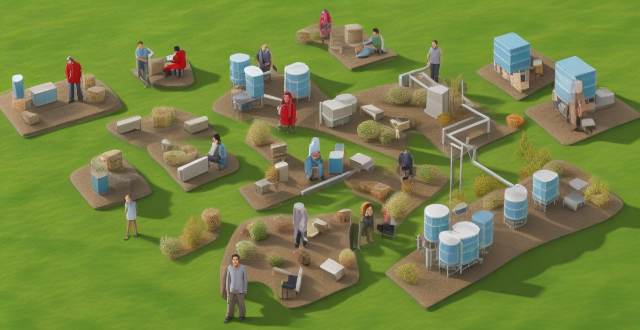
What are the latest technological innovations in the field of artificial intelligence ?
Artificial Intelligence (AI) is a rapidly evolving field that has seen significant advancements in recent years. The latest technological innovations include Natural Language Processing (NLP), Computer Vision, and Machine Learning. NLP focuses on enabling machines to understand and generate human language, while Computer Vision enables machines to interpret and analyze visual information. Machine Learning is a subset of AI that involves training algorithms to learn from data without being explicitly programmed. These innovations have the potential to transform various industries and improve our daily lives.

How does one navigate dressing for success in a male-dominated field ?
In male-dominated fields, dressing for success is crucial for asserting your presence and earning respect. This guide covers understanding the dress code, adapting without losing identity, key elements of professional attire, accessorizing, color and pattern strategy, fit and quality, hair and grooming, body language, personal brand cultivation, situational dressing, and continuous assessment. It emphasizes the importance of blending norms with personal style, maintaining confidence, and continuously evaluating wardrobe effectiveness.

How can we prepare for the changing job landscape in the future ?
The future job landscape is constantly evolving, and it's important to stay ahead of the curve. Here are some ways to prepare for the changing job landscape: 1. **Continuous Learning**: Upskill or reskill to remain relevant in the job market, take advantage of online courses, and attend workshops and seminars related to your field. 2. **Adaptability**: Embrace change, be open to new ideas, and be flexible in your job search. 3. **Networking**: Build professional relationships, attend events, join professional organizations, and connect with people on platforms like LinkedIn. Conduct informational interviews with professionals in your field. 4. **Technology Proficiency**: Stay tech-savvy and familiarize yourself with popular tools and software used in your industry. Consider learning basic coding skills. 5. **Personal Branding**: Establish an online presence through platforms like LinkedIn, Twitter, and personal websites. Showcase your expertise by publishing articles and participating in discussions. By focusing on these areas, you can position yourself for success in the ever-evolving job market.

How is AI changing the field of finance and banking ?
AI is revolutionizing the finance and banking industry by improving efficiency, accuracy, and customer experience while streamlining risk management processes. AI-powered algorithms can analyze vast amounts of data quickly and accurately, leading to faster and more informed decisions. Automated processes save time and reduce human error. Fraud detection is enhanced by analyzing patterns in customer behavior and transactions. Personalized customer experience is provided through detailed profiling and predictive analytics. Risk management is streamlined with credit risk assessment and market risk analysis.
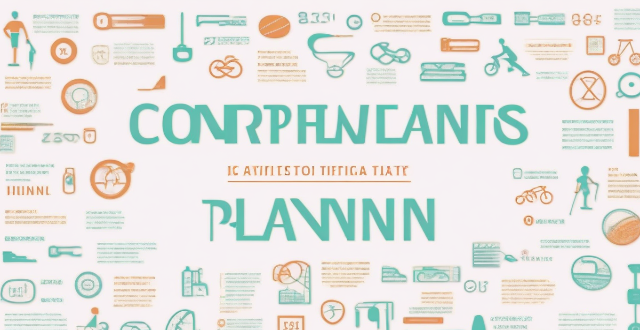
What should be included in a sports career plan ?
A comprehensive sports career plan should include personal information, career objectives, skill development, education & training, competition history, sponsorship & funding, off-field activities, health & wellness, post-retirement planning, and a conclusion. It serves as a roadmap to guide athletes through their journey in sports, ensuring they are well-prepared for every stage of their career.

How do scientists study climate change ?
Scientists study climate change through observational data, modeling, and field research. They use satellites, weather stations, ocean floats, climate models, paleoclimate reconstructions, ice cores, coral reefs, tree rings, and interdisciplinary collaboration to collect and analyze data. They also publish synthesis reports like the IPCC Assessment Reports to summarize current scientific knowledge on climate change.